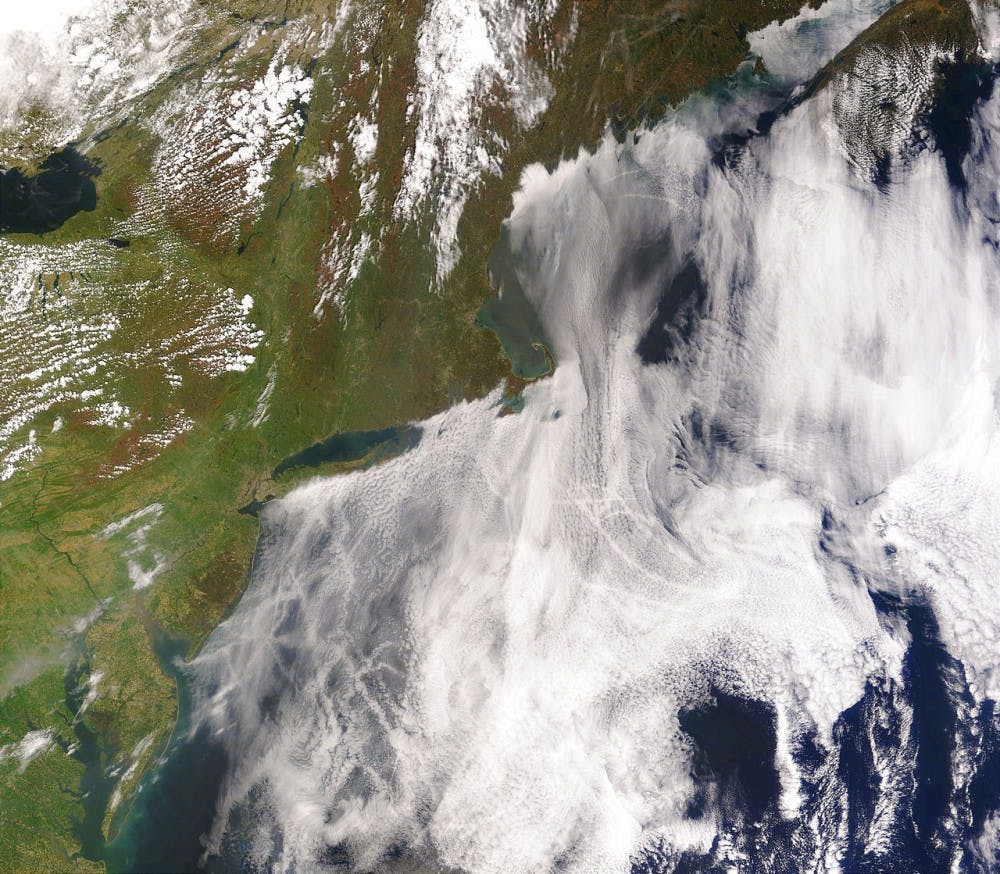You probably guessed that I would talk about climate change as an issue in the 2020 election, since it is a crisis currently getting a lot of attention. Multiple sources have highlighted the fact that Democratic voters now rank climate change as a top priority in their political decisions. Candidates have responded to this, emphasizing their own concern and arguing over the best way to reduce reliance on fossil fuels and fight climate change.
Clearly, climate change is important to both voters and candidates during this 2020 election cycle. If you want to make sure your vote will support the environment, you need to know where each candidate stands. In the hopes of making it easier for voters at Hopkins to pick a candidate, the different policies and stances of candidates will be summarized below. As always, do your own research! I derive a weird joy from putting together this type of list, and I hope my candidate summaries can help you make informed decisions.
While some candidates (Yang, Castro, Booker and Harris) have goals of achieving net-zero emissions sooner than others, each of the Democratic presidential candidates discussed aim to reach net-zero by 2050.
Former Vice President Joe Biden plans to invest $1.7 trillion in clean energy over 10 years, paid for by reducing corporate tax breaks. Biden supports investment in nuclear energy to combat climate change, and during CNN’s Climate Town Hall discussed his plans of expanding mass transit to reduce emissions from motor vehicles.
Vermont Senator Bernie Sanders is a co-sponsor of the Green New Deal, and he hopes to shift to the use of only renewable sources of electricity and transportation by 2030. Sanders has also advocated for public ownership of energy utilities, supports a nationwide fracking ban and his climate plan suggests allocating $200 billion to the United Nation’s Green Climate Fund to support developing countries.
Massachusetts Senator Elizabeth Warren, another co-sponsor of the Green New Deal, has issued multiple plans on how to fight climate change. Warren wants to halve carbon pollution by 2030, make electricity generation completely renewable by 2035, eliminate nuclear power and ban fracking across the country.
Entrepreneur Andrew Yang emphasizes innovative, and often controversial, approaches to environmental issues. Nuclear energy is a component of his clean energy plan, and he supports using government funds to help relocate citizens affected by rising sea levels on the coasts. Yang also supports the new, unproven technology of cloud seeding, which consists of adding chemicals to the atmosphere to induce precipitation on areas affected by droughts.
Former Texas Representative Beto O’Rourke would end new oil and gas leases on federal lands, and end tax subsidies for fossil fuel companies. Unlike other Democrats, he supports a cap-and-trade policy rather than a carbon tax and would allocate federal funding to help relocate individuals living in areas that have been repeatedly affected by floods to safer locations.
New Jersey Senator Cory Booker is a vegan, but has insisted on multiple occasions that he would not force this upon others because that would, of course, be un-American (we sure do love our freedom and our burgers). On the topic of agriculture, however, he would end subsidies for corporate farming practices.
Additionally, Booker is a strong proponent of nuclear power, arguing that technological advancements have significantly improved its safety.
California Senator Kamala Harris, co-sponsor of the Green New Deal, also hopes to power America on net-zero electricity by 2030. Harris would level a climate pollution fee on corporations, ban fracking nationwide and use the Department of Justice to sue fossil fuel companies who have played direct roles in global warming.
Minnesota Senator Amy Klobuchar (my idol since I was eight years old) is another co-sponsor of the Green New Deal.
One of Klobuchar’s hallmarks is her $1 trillion infrastructure plan, which would create green jobs. At CNN’s Climate Town Hall, she mentioned the possibility of using human nature and psychology to drive sustainability, proposing that electric bills be issued with neighborhood averages and rankings, to push competitive environmentalism.
Mayor of South Bend, Indiana Pete Buttigieg supports a carbon tax on businesses, wants to double domestic clean energy production by 2025 and invest $200 billion in clean energy research over 10 years. In CNN’s Climate Town Hall, it was pointed out that Buttigieg’s campaign spent the most on private air travel in the second quarter of 2019, which he defended, arguing that the air travel industry is essential.
Former Secretary of Housing and Urban Development Julian Castro proposes an ambitious goal of net-zero carbon emissions globally by 2050. He hopes to reach net-zero electricity generation by 2030 and the use of fully renewable power by 2035.
Castro supports a carbon tax, would implement new civil rights legislation to combat environmental racism and wants to set aside half of American land for wildlife and biodiversity.
Well, there you have it. Arguably, this is not the most entertaining read, but it is a quick summary of complex plans that are pretty darn important, objectively. While I did not mention every component of every candidate’s plans, I tried to identify the nuances between the candidates in a time where everyone has similar goals.
Luckily for anyone offended by the length of this list, the democratic field will continue to shrink as the race continues.





